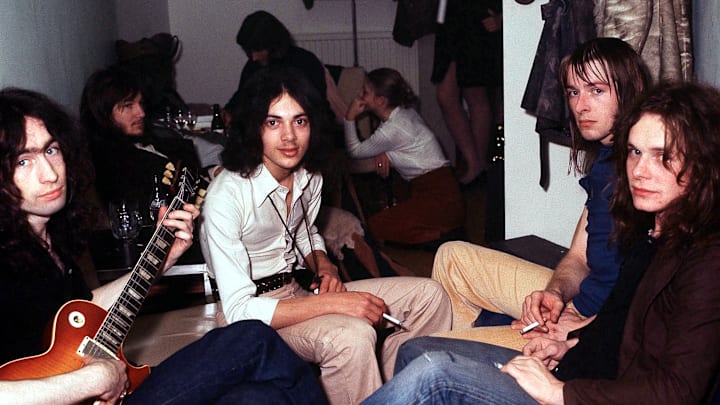I’m looking back at the 1970s again. It was such a great period for music. Not just classic rock and roll but a whole variety of artists of all types. We shouldn't forget music having its rebellion too with the way punk rock exploded on the scene.
It must have been hard for writers to keep pace, to stay ahead of the rest and to create new songs with so many different types of music emerging. And yet despite that challenge, we had lots of classic songs in the 1970s. Many of which stand the test of time and sound just as great today.
Which makes you wonder how some of those songs were written. What are the stories behind the creation of them or the tale that the lyrics tell? Some are well known, we’ve all heard that Eric Clapton wrote “Layla” for Patti Boyd. Most will be likely to know that Pink Floyd’s “Shine On You Crazy Diamond” celebrates ex-band member Syd Barrett. Even if a few people get confused and mistakenly think it’s “Wish You Were Here” that's about Barrett.
Five fantastic 1970s songs and their story
Let’s have a look at some different stories instead. Here are five terrific songs from the 1970s, by some amazing artists. They all have a story behind them to tell.
Stranglers - “No More Heroes”
This was a great song from the Stranglers. They were on a different path of punk to many bands with their music. “No More Heroes” has that bit more in its sound with the trademark Stranglers keyboards, Jean-Jacques Burnel’s bass hook lines, and some clever lyrics from Hugh Cornwell. But who were the missing heroes he was referring to, not to mention those ‘Shakespearoes’?
It turns out that Cornwell was referring to a strange mix of Elvis Presley and Groucho Marx when he wrote the lyrics back in August 1977. That was during the week when both Presley and Marx died. He was struck by the passing of two icons that had been part of his cultural upbringing. Neither gets a mention alongside the likes of Leon Trotsky or Sancho Panza in the song, but the two stars were his heroes who were no more.
As for the literary bard, Cornwell was looking for a rhyme for Helen Shapiro in his original version of the song. The word Shakespearoes was a good fit, but the words didn't quite work. A swift change to “Whatever happened to all the heroes? All the Shakespearoes?” stuck and raised the question of what it meant. We spent too long back then looking for a non-existent meaning rather than just going with the rhythm and rhyme.
Continued on next page
